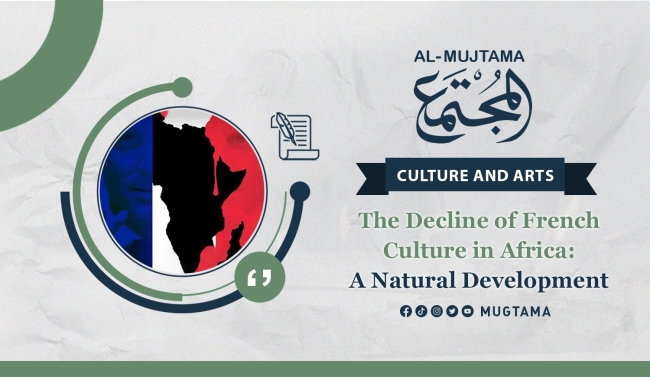The Decline of French Culture in Africa: A Natural Development Featured
-------------
Culture and Arts
Leila Slimani, a French writer of Moroccan origins, believes that the decline of French culture and language in French-speaking African countries is a natural consequence of their liberation from colonialism. She sees this as a positive development, as it allows these countries to embrace their own identities and become independent.
The Post-Liberation Phase
In an interview with Reuters, Slimani explained that the decline of French literature in Africa began after the countries gained their independence. She believes that a new generation is emerging, one that wants to take pride in their own languages and cultures instead of remaining dependent on the West.
Identity and Independence
Slimani sees the desire for identity and independence as a natural progression for these African countries. She believes that it is important for them to break free from the influence of Western culture and establish their own unique identities.
Laila Slimani at the International Film Festival
Slimani is currently attending the International Film Festival in Marrakesh as a member of the official competition film jury. This festival brings together films from 36 countries, providing a platform for diverse voices and perspectives.
A Quiet Song: From Novel to Film
Slimani's novel, A Quiet Song, was adapted into a film in 2019 by French director Lucie Borletto. The novel won the prestigious Goncourt Prize in 2016, making Slimani the first woman of Arab and African origin to receive this honor.
Overcoming Challenges
Slimani emphasizes that as an artist, her focus is on her thoughts and feelings rather than her origin or identity. She believes that the challenges she faces are universal and that she strives to write sincerely and authentically.
The Influence of Maghreb Culture
Slimani highlights the strong presence of Arab culture, particularly Maghreb culture from Morocco, Algeria, and Tunisia, in France. She applauds the emergence of Moroccan women writers who tackle previously silenced topics, such as the female body.
The Future of Reading and Books
Despite the rise of technology and social media, Slimani remains optimistic about the future of reading and books. She believes that books still hold value and that people continue to read and appreciate them.
Adapting Novels into Films
Slimani has encountered directors interested in adapting her novels into films. While she is curious about their vision, she is selective about which novels she wants to see on the big screen.
Source: Reuters


